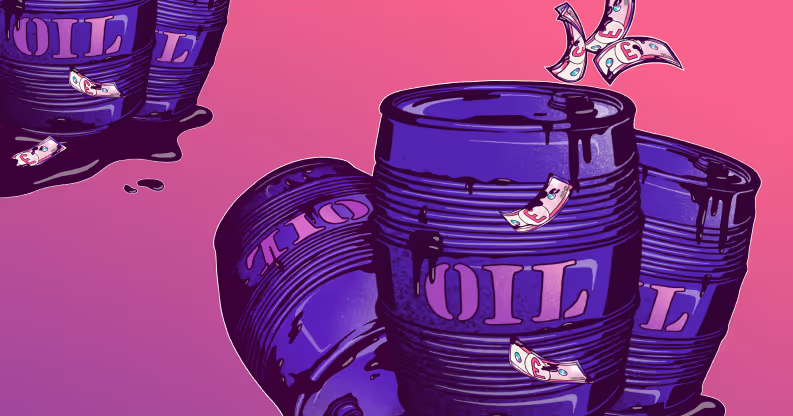With calls for a ban on Russian oil, the commodity’s price is spiking. If the West follows through with its threats, there will be significant near-term supply disruptions to navigate.
But oil is a global marketplace, and because a barrel of oil is a barrel of oil (give or take) a Russian exit could potentially be made up from other sources.
Russia accounts for around 11% of the world’s production. It isn’t as simple as a like-for-like comparison, and we’re not suggesting that an 11% reduction in supply (if Russian barrels get axed) should lead to an 11% increase in the price.
But the price of oil has risen sharply, and it’s worth questioning what the right reaction should be.
We do know a couple of things. One, the long-term price is set by demand and supply and two, the near-term price is impossible to predict; it could go to $200 as some are suggesting, or it could slide back to $80 if tensions calm and demand slows.
At the start of the pandemic, demand for oil was obliterated and the world ran out of storage. Its price went negative, meaning you’d have to be paid to take a barrel and keep it in the garage. That’s a short two years ago.
Drill baby drill
If America and its allies ban Russian oil imports there will be a scramble to make up for the shortfall. The US will ramp up exports, pressure will build on OPEC countries to loosen the spigots, and Europe will probably race to build as much liquified natural gas (LNG) storage as possible.
But this is a short-term solution, and looking longer term it's possible that countries will use the current situation to bring forward their already beefed up renewable energy plans.
So what of ESG?
One of the hottest topics in investing has cooled this year as inflation heated up and investors turned to old fashioned commodity companies. There have even been calls for weapons makers to be given an honorary ESG status in the name of ‘peacekeeping’.
But the ESG theme is evergreen and it’s worth keeping an eye on the renewable energy supply chain and the investments that play into it. Especially if governments around the world have another push towards green energy.
The recent run-up in the price of copper suggests that the metal is ticking boxes for ESGers and inflation hedgers. Commodities are generally considered inflation hedges, and copper has a high electricity conduction capacity, making it a vital ingredient in the renewable energy recipe. Who knew metal could taste good too.
Sign up to Freetrade Honey, our market newsletter.

See the most popular investments with a breakdown of the most traded stocks and most popular ETFs on Freetrade. Follow the IPO calendar and keep an eye on exciting new investment opportunities.
This should not be read as personal investment advice and individual investors should make their own decisions or seek independent advice. This article has not been prepared in accordance with legal requirements designed to promote the independence of investment research and is considered a marketing communication.When you invest, your capital is at risk. The value of your portfolio can go down as well as up and you may get back less than you invest. Past performance is not a reliable indicator of future results.Freetrade is a trading name of Freetrade Limited, which is a member firm of the London Stock Exchange and is authorised and regulated by the Financial Conduct Authority. Registered in England and Wales (no. 09797821).

.avif)



.avif)

.avif)
.avif)



